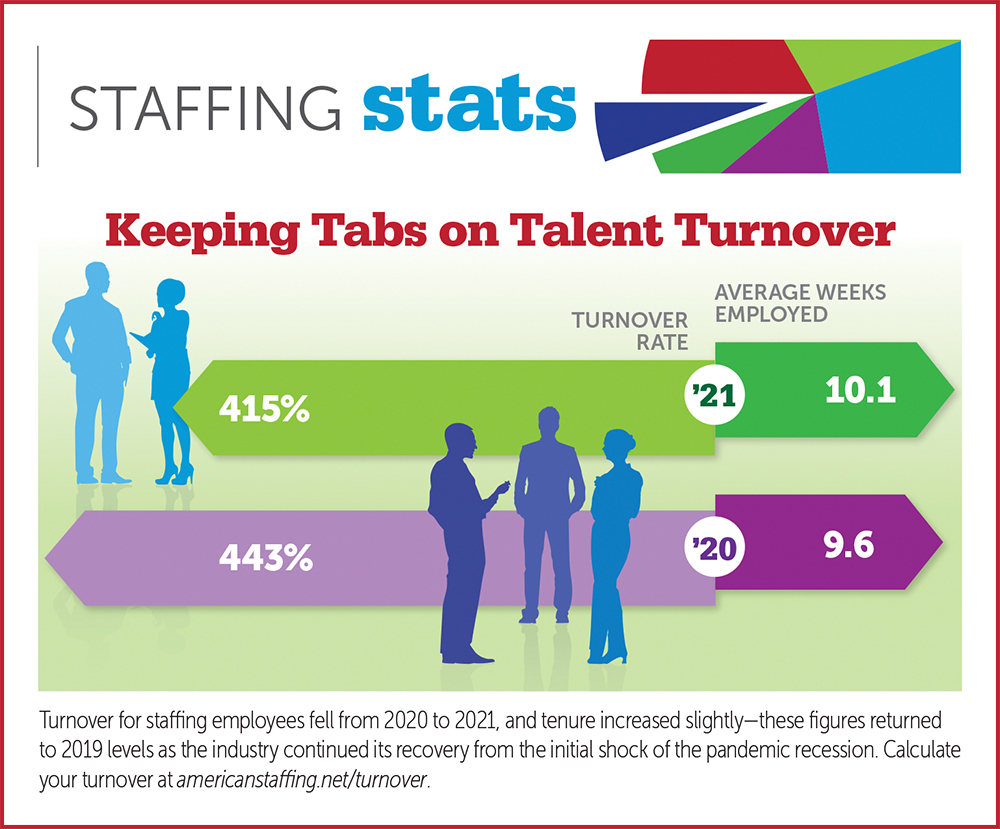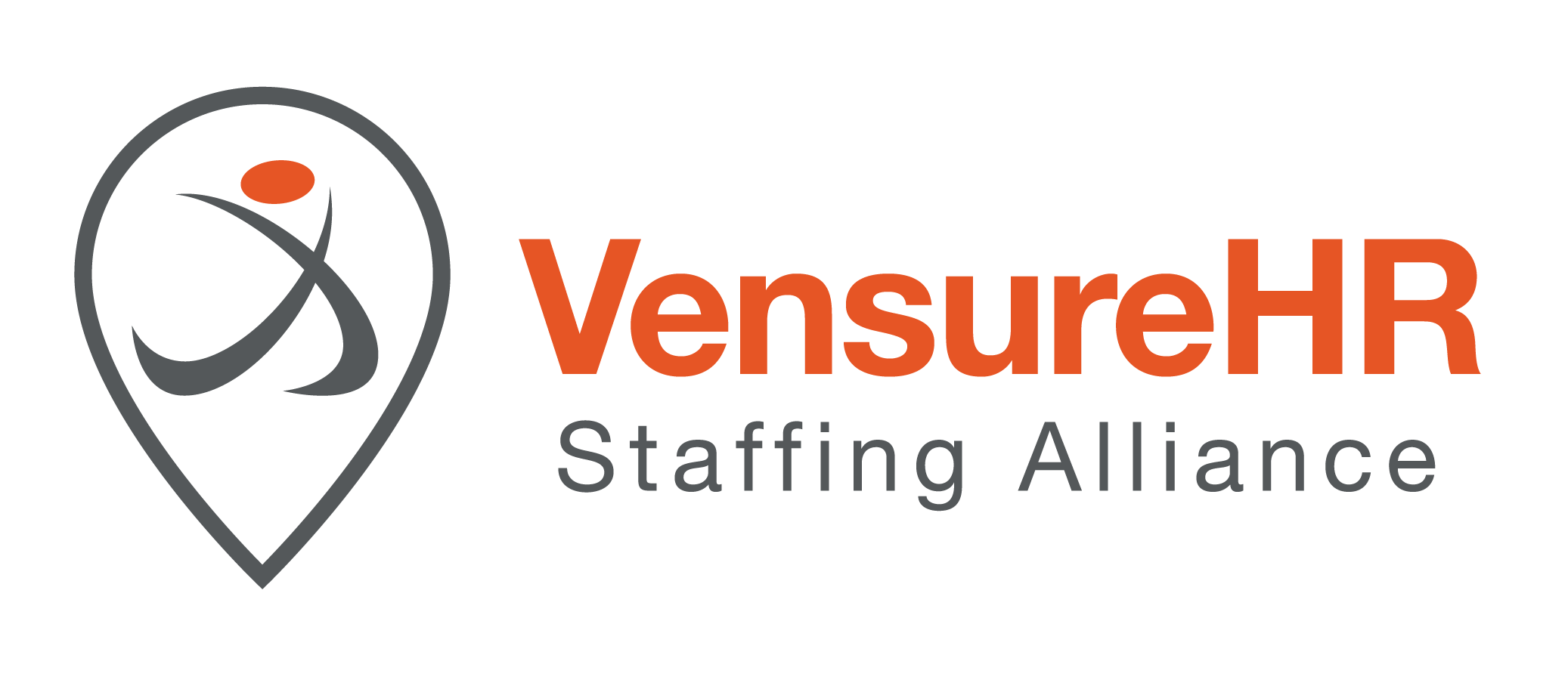September 14, 2022
Help Advance the Industry by Volunteering With ASA
Are you looking for opportunities to contribute your skills and insights in the staffing industry, and serve as an industry leader? ASA is currently seeking dedicated members for volunteer committees and councils.
ASA needs your skills, insight, and unique perspective so it can continue to provide timely, valuable resources to members. Apply for a volunteer opportunity to work directly with other members, learn about workforce trends and best practices, and build on your experience to become a thought leader with the association. Log in to ASA Central and visit the volunteer page to find an opportunity that fits your interests. The deadline to apply is Oct. 31.
Headline News
Cross Country Healthcare to Acquire Mint Medical Physician Staffing and Lotus Medical Staffing
Cross Country Healthcare Inc. News Release (09/14/22)
Cross Country Healthcare Inc. has entered into a definitive agreement to acquire the assets of Mint Medical Physician Staffing LP and Lotus Medical Staffing LLC. Mint is a locum tenens staffing firm that places physicians, nurse practitioners, and physician assistants in temporary jobs. Lotus is a locum tenens and permanent placement firm specializing in the placement of anesthesiologists and certified registered nurse anesthetists. The transaction is expected to close in the last quarter of 2022.
Return to Headlines
|
Read the full story→
Headline News
Inflation Expectations Decline Further; Earnings Growth Expectations Remain Unchanged
Federal Reserve Bank of New York (09/12/22)
The Federal Reserve Bank of New York’s August 2022 Survey of Consumer Expectations shows that inflation expectations continued to decline across all horizons. The one-year measure dropped to 5.7% from 6.2% in July. Median one-year-ahead expected earnings growth remained unchanged at 3.0% in August for the eighth consecutive month. Mean unemployment expectations—or the mean probability that the U.S. unemployment rate will be higher one year from now—decreased by 0.2 percentage point to 40.0%.
The mean perceived probability of losing one’s job in the next 12 months decreased by 0.7 percentage point to 11.1%. Similarly, the mean probability of leaving one’s job voluntarily in the next 12 months decreased by 0.9 percentage point to 18.5%, its lowest reading since March 2021. The mean perceived probability of finding a job (if one’s current job was lost) increased to 57.2% from 55.9% in July. The increase was most pronounced for those with a high-school education or less.
Return to Headlines
|
Read the full story→
Headline News
Producer Prices Fall for a Second Month
Bloomberg (09/14/22) Pickert, Reade
A measure of producer prices declined for a second consecutive month in August as fuel costs continued to drop, though an underlying measure of wholesale costs firmed in a sign of persistent inflation. The producer price index for final demand edged down 0.1% from a month earlier and rose 8.7% from a year ago, according to the U.S. Department of Labor. Excluding the energy and food components, the core PPI rose a bigger-than-forecast 0.4% in August and was up 7.3% from a year ago.
Goods prices declined 1.2% as gasoline prices continued to drop. Food prices were unchanged from the previous month. Excluding energy and food, the index of goods costs advanced 0.2% for a second month. Services prices rose 0.4%, the most in three months. Forty percent of the increase was because of higher margins for fuel retailers.
Meanwhile, a potential railway strike threatens to hinder supply chains. The walkout, which could start later this week, would disrupt the transportation of goods ranging from food and lumber to coal.
Return to Headlines
|
Read the full story→
Headline News
It’s White-Collar Jobs That Are at Risk in the Next Recession
Bloomberg (09/13/22) Dmitrieva, Katia; Pickert, Reade
White-collar industries such as business services, technology, banking, and real estate could see the biggest layoffs in a downturn of the U.S. economy. Ever since the mass layoffs early in the pandemic, these industries have been adding workers at a rapid clip, economists say. White-collar industries miscalculated on a long surge in growth, and now have staffing numbers far above pre-Covid-19 levels. Jobs in professional and business services are up by more than one million. During the pandemic, low-wage workers bore the brunt of layoffs.
About two-thirds of employers see a recession coming, according to a survey by Principal Financial Group. More broadly, companies are lowering their projected staff costs for next year, eliminating job postings in areas such as accounting and customer support, and aiming to hire fewer people or space out hiring over a longer time, says Dave Gilbertson, vice president of staffing firm UKG. “There are all these sectors out there that are heading into what could be a recession,” he says. “They’re hedging their bets a little bit in the amount of hiring that they’re going to do.”
Return to Headlines
|
Read the full story→
Headline News
Starbucks Adds Employee Benefits to Help With Student Debt, Build Savings Accounts
Yahoo! Finance (09/12/22) DiPalma, Brooke
Starbucks is adding a couple new employee benefits, both of which will begin Sept. 19. The first, dubbed the Student Loan Management Benefit, has been designed to help U.S. employees manage their student loans via a partnership with the online tool benefit platform Tuition.io. The second, My Starbucks Savings, is intended to help employees save for the “unexpected.” In partnership with Fidelity, employees can contribute a portion of after-tax pay on a recurring basis directly from their paycheck to an individual savings account. As an incentive, Starbucks will provide $25 and $50 credits at certain milestones.
Return to Headlines
|
Read the full story→
Staffing Stat
Keeping Tabs on Talent Turnover
|
|
|
|
|
|
|
ASA for You
ASA Networking Call Tomorrow—Preventing Burnout
Don’t miss tomorrow’s event “Burning Bright, Burning Out: Follow-up Networking Call,” 3–4 p.m. Eastern time. Explore the phenomenon of burnout, determine ways to manage your risk for burnout; and learn to identify methods to avoid it.
Presented by the ASA inclusion, diversity, and equity advocacy (IDEA) group, this call qualifies for continuing education credit toward ASA certification renewal. To learn more and to register, visit americanstaffing.net.
Return to Headlines
Legal Watch
Proactive Steps Employers Should Take to Deal With Employees ‘Quiet Quitting’
JDSupra (09/07/22)
There are several things employees can do to address the trend of “quiet quitting,” in which employees place less of a priority on work and work less or perform the bare minimum to maintain their job. Employers should review their existing job descriptions and determine whether an employee who did all of the listed tasks would be an asset to the company, and if not, update the job description. Their job descriptions should detail the job’s essential functions, expected hours of work, and whether in-person work is required, listing the functions that can be performed only in-office.
Employers also should manage and document performance issues early on, and managers can discuss their concerns with employees and consider ways to help them re-engage with their jobs and the organization. Given that quiet quitting is rooted in employee burnout, employers should consider ways to improve employee engagement, such as more flexible scheduling, shorter workweeks, extended company-wide holidays, or using time off as an incentive.
Return to Headlines
|
Read the full story→
Legal Watch
Eleventh Circuit Holds That a Franchisor and Its Franchisees May Violate Sherman Act by Entering Into No-Hire Agreements
Lexology (09/12/22) Pletcher, Anna T.; McIntyre, Stephen; Kaufmann, Laura K.; et al.
The U.S. Court of Appeals for the 11th Circuit recently held that a franchisor and its franchisees engage in concerted action for purposes of Section 1 of the Sherman Act when they enter into “no-hire” agreements. In Arrington v. Burger King Worldwide Inc., the 11th Circuit relied extensively on Burger King’s standard franchise agreement. The court reasoned that “each franchisee is an independent center of decision making as to hiring or employment agreements.” In concluding that Burger King and its franchisees are each independent actors, the 11th Circuit’s decision largely focused on the existence of competition between the franchisees themselves.
The 11th Circuit’s decision in Arrington may signal that courts are becoming increasingly willing to scrutinize alleged restraints on labor markets. There has been an uptick in recent years in challenges to no-poach agreements by enforcement agencies and class-action plaintiffs. Employers should continue to be mindful of the potential antitrust risk involved in no-poach agreements, communications with competitors about wages or terms of compensation, and noncompete agreements.
Return to Headlines
|
Read the full story→
Legal Watch
New York State and City Employers Should Prepare to Provide Retirement Plan Options for Their Employees
JDSupra (09/12/22) Belony, Laurie; Goldstein, Hope Sarah
New York state requires automatic enrollment of employees in the New York State Secure Choice Savings Program by employers that do not provide employer-sponsored retirement plan options. Lawmakers passed Senate Bill S5395A last October, and state officials have two years to facilitate the change. State officials met earlier this year to design and implement changes. New York state employers should familiarize themselves with details about the retirement savings plan and look out for regulations that may be issued.
In New York City, the Savings Access New York Retirement Program further covers employers. Enacted on May 11, 2021, New York City’s retirement program is similar to the state program. The key differences are that the city program has a default payroll deduction of 5%, which can be adjusted by the employee, and it applies to employers with five or more employees. The city has not yet implemented the program. However, New York state and city employers should prepare to provide retirement plan options for their employees.
Return to Headlines
|
Read the full story→
Trends and Research
‘Work Hard, Play Hard’ and More Phrases That Can Scare Away Job Applicants
Wall Street Journal (09/13/22) Smith, Ray A.
As workers grow more vocal about finding fulfilling jobs they can do without working much overtime—a practice that has been called “quiet quitting” or “anti-hustle”—many job seekers are closely examining job postings for commonly used phrases they view as red flags for potential overwork. Phrases that turn off job seekers include “must handle stress well” and “willing to wear many hats,” according to a survey of 800 job seekers by Paychex Inc. Some workers say that “we’re like a family” can read as code for being subject to verbal abuse, and descriptions touting perks such as free meals and on-site entertainment can indicate bosses will expect employees to put in long hours.
In reviews of employers by workers posting on Glassdoor, the terms “self-starter” and “hustle” came up in more negative comments than positive ones, according to a Glassdoor analysis. However, companies seem to be using those two terms in more job postings lately, according to Indeed.com. The term “fast-paced” used in job ads doubled between 2019 and 2022, Indeed noted.
Return to Headlines
|
Read the full story→
Trends and Research
Some Small Businesses Are Pulling Back on Hiring. Here’s What’s Giving Them Pause
Bizjournals (09/13/22) Medici, Andy
Sixty-three percent of U.S. small-business owners are halting hiring, according to a survey of 5,618 small businesses by small-business network Alignable Inc. Of those, about 49% said they were looking for workers earlier in the year but stopped because of high payroll expenses, recession fears, and reduced revenue. In July, only 45% said they were pausing hiring. About 58% of small businesses said their total payroll costs are at least 50% more than prior to the Covid-19 pandemic. About 10% of small-business owners said they are cutting staff, up from 4% in July.
The percentage of small- and midsize-business owners feeling pessimistic inched up to 7% in the summer compared with 2% in the spring, according to a survey by PNC Bank. But 49% of owners still described themselves as highly optimistic. Nearly seven in 10 owners (69%) said they fear a recession is likely within the next year. Recruiters said the hiring market for top talent will remain intense, according to a survey by Employ Inc. About 69% said attracting and hiring talent will be difficult for the remainder of 2022, while more than half said there is not enough quality talent to fill current jobs.
Return to Headlines
|
Read the full story→
Trends and Research
Teacher Shortages Are Real, but Not for the Reason You Heard
Associated Press (09/12/22) Lurye, Sharon; Griesbach, Rebecca
There is little evidence to suggest teacher turnover has increased nationwide or educators are leaving in droves. Many schools have struggled to find enough educators, but the challenges are related more to hiring, especially for nonteaching staff jobs. The number of people employed in public schools dropped from almost 8.1 million in March 2020 to 7.3 million in May, according to the U.S. Bureau of Labor Statistics. Employment has grown to 7.7 million since then, but that still leaves schools short around 360,000 employees.
Quit rates in education rose slightly this year, but that’s true for the nation as a whole, and teachers remain far more likely to stay in their job than a typical worker. Hiring has been so difficult largely because of an increase in the number of open jobs. Schools flush with federal pandemic relief money are creating new jobs and struggling to fill them at a time of low unemployment and stiff competition for workers of all kinds. Three-fourths of school leaders are trying to hire more substitutes, 58% are trying to hire more bus drivers, and 43% are trying to hire more tutors, according to a survey by RAND.
Return to Headlines
|
Read the full story→
Trends and Research
The State of Tech Salaries in 2022
PRNewswire (09/13/22)
Technology job candidates in the San Francisco Bay Area continue to see the highest salary offers at an average local salary of $174,063, followed by Seattle ($168,069), New York ($161,128), Boston ($158,548), and Austin, TX ($157,612), according to an analysis of data from recruiting marketplace Hired, as well as a survey of more than 2,000 tech professionals by Hired. Average local salaries for candidates in mid-size markets (Boston, Los Angeles, and Seattle) have quickly caught up to salaries on par with larger tech hubs. Smaller markets such as Philadelphia (+12%), Dallas-Fort Worth (+11%), and Denver (+11%) showed the highest average local salary increases across all markets.
Remote salaries have continued to outpace local salaries. Average remote salaries climbed to $162,950 this year, ranking third highest overall in the report. “The hiring climate this year has been full of contradictions and challenges,” said Josh Brenner, Hired chief executive officer. “We’ve seen climbing salaries, aggressive hiring, and layoffs—all at once. However, the hiring landscape remains competitive as companies innovate and diversify their teams through remote work.”
Return to Headlines
|
Read the full story→
ASA Corporate Partners
Staffing Today is published by the American Staffing Association, with news abstracts copyrighted in 2025 by SmithBucklin of Chicago, IL, and all other content copyrighted in 2025 by ASA. No part of this publication may be reproduced without permission.
|











